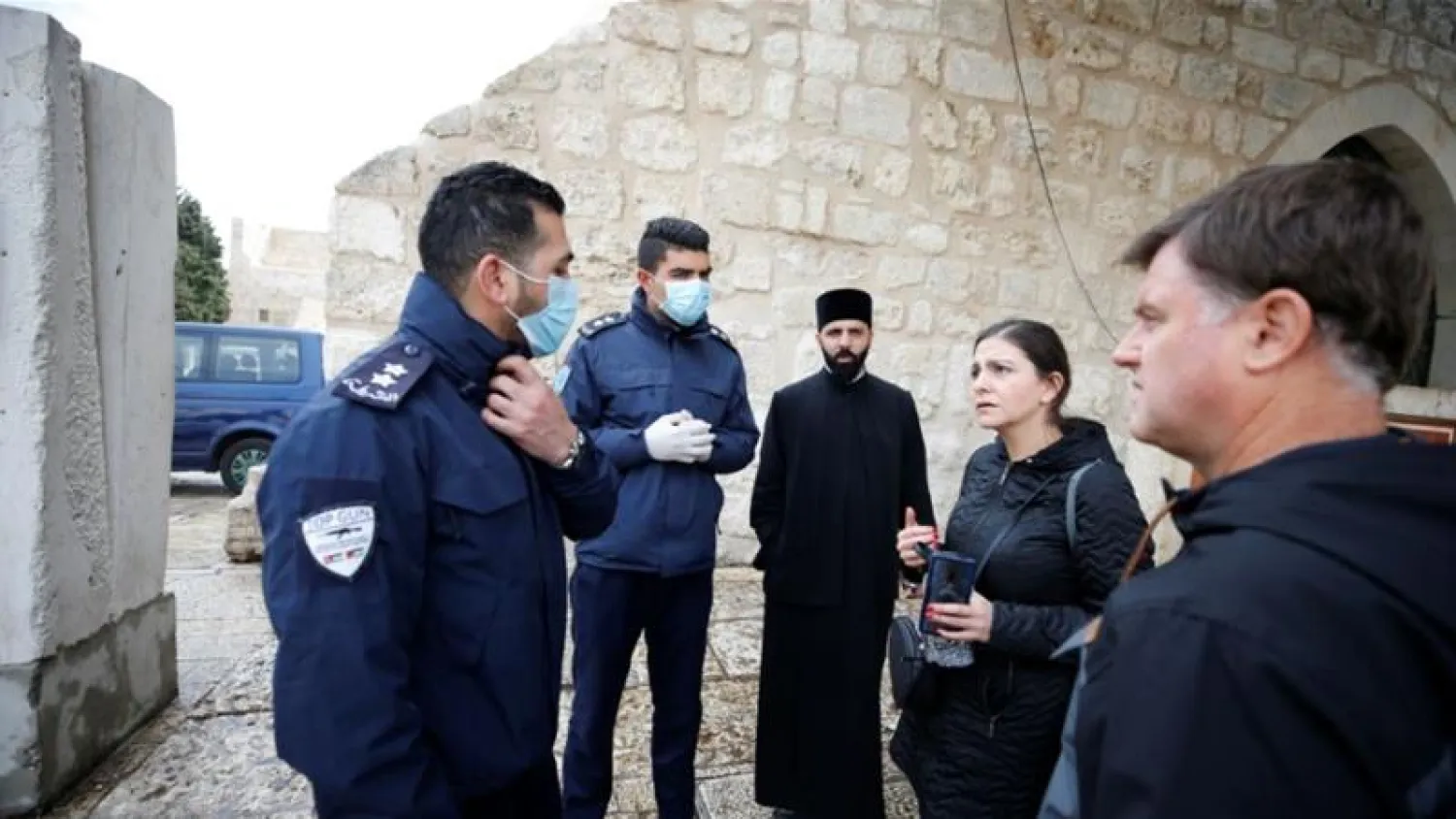A senior Fatah official was shot dead in the West Bank on Saturday during a confrontation with Palestinian Authority (PA) security forces, which raised concerns about security in the area.
Fatah member, Emadeddine Abu al-Ameed Dweikat, 54, was fatally shot in al-Balata suburb of Nablus, by security officers when they were trying to close stores and arrest their owners for not adhering to precautionary measures during the coronavirus pandemic.
Clashes erupted and authorities tried to arrest a store owner, when Dweikat intervened saying he allowed the shops to open for two hours per day within his capacity as Fatah’s official in the neighborhood. Then, a security officer opened fire, killing Dweikat and injuring another young man.
The incident soon turned into angry protests within Fatah areas, and protesters threw stones at the security forces and blocked roads in a tense situation.
The incident brought back to mind similar confrontations in Dheisha camp in Bethlehem between angry citizens and the security forces.
Also, the West Bank witnessed clashes between security forces and protesters denouncing the economic policies pursued within the emergency plan announced during the coronavirus pandemic.
The authority was accused of suppressing freedoms, arresting activists, and pursuing others, as rights groups and centers have denounced the use of excessive force.
The Popular Front, a major faction in the Palestinian Liberation Organization (PLO), called on the PA security forces to enforce discipline among its members and “respect the law, dignity, and rights of our people.”
It urged authorities to establish more feasible measures to confront COVID-19 disease, noting that the current measures were not fair for the poor.
Meanwhile, Hemaya Center for Human Rights also condemned the use of excessive force by the authority, which constitutes a violation of the United Nations Code of Conduct for Law Enforcement Officials, stating in its third article that: “Law enforcement officials may use force only when strictly necessary and to the extent required for the performance of their duty.”
The Center called for an immediate, independent, and serious investigation into the killing of Dweikat, noting that the results must be publicly published in order to achieve justice.
The Governor of Nablus, Major General Ibrahim Ramadan, announced the formation of an investigative committee to probe Dweikat’s death.
“There is a necessity for everyone to exercise a sense of responsibility, and we will stand upon our own responsibilities to immediately investigate these events, based on instructions from the His Excellency the President and the Prime Minister,” Ramadan said in a press statement.









